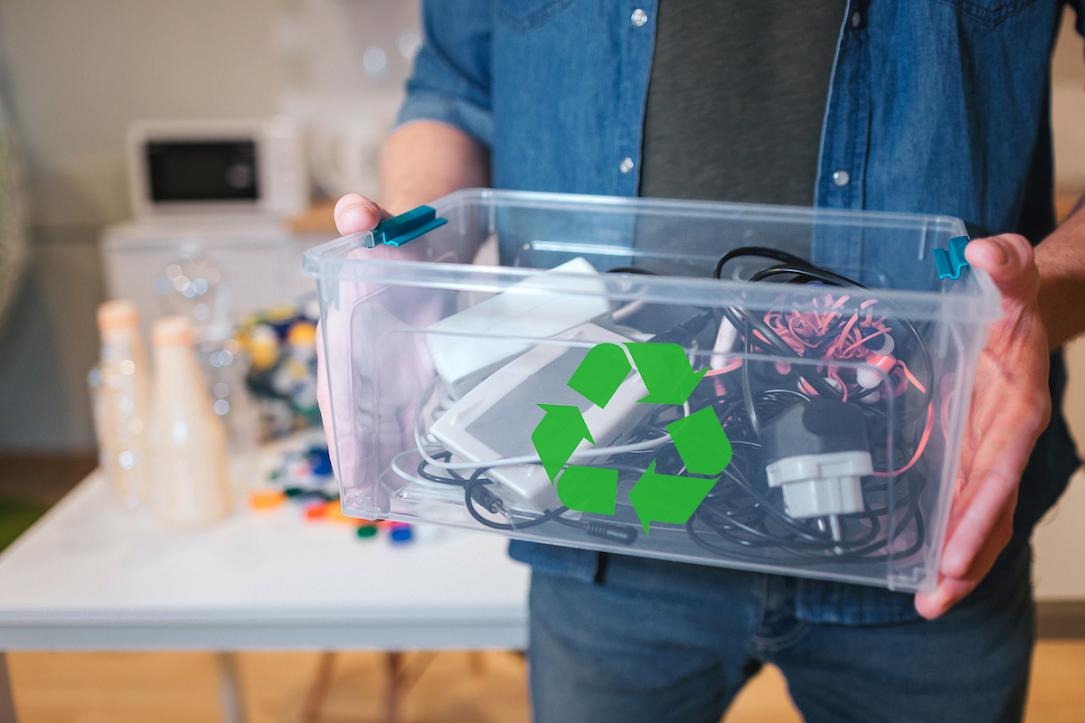Romanians generate over 100,000 tons of e-waste annually, only a third is recycled



Romanians generate annually over 100,000 tons of electronic and electrical waste (e-waste), making Romania one of the most polluted European states, even though there are countries that produce much larger quantities of waste.
What's worse, the collection rate reaches 35% in Romania by the most optimistic estimates, while the European average was 45.9% in 2020. Most commonly, Romanians recycle washing machines (70.67%), while they have a harder time parting with mobile phones (11%), according to data from the ENVIRON association, one of the most important organizations in Romania that recycle e-waste.
On the occasion of Earth Day (April 22), representatives of ENVIRON sound the alarm and say that the time has come for electronic recycling to be part of the education of Romanians, as is the case in other countries in the EU.
In its 16 years of activity, ENVIRON has collected over 160,000 tons of electronic and electrical waste. Only last year, 39,343 tons of e-waste were collected and recycled. The top items collected were washing machines (70.67%), refrigerators (12.1%), televisions and monitors (8.71%), and small-sized equipment (7.13%).
In total, ENVIRON managed 1,436,555 units of e-waste last year, most of which was small-sized waste (561,030 pieces). The next most collected were washing machines (560,520 pieces), televisions and monitors (228,451 pieces), and refrigerators (86,554 pieces). The items least given for recycling are electronic objects such as mobile phones, laptops, and other small-sized waste.
"One explanation is that Romanians, especially seniors, are reluctant to give up the electronic and electrical equipment they have. And when it comes to small-sized items, such as mobile phones and cables, chargers, cameras, e-cigarettes, etc., we have found that they often do not even realize that these are also waste, and therefore they do not give them for recycling, preferring to keep them in drawers or, even worse, throw them away," said Roxana Puia, Marketing Manager at ENVIRON, in the press release.
It is very important, however, that when electrical and electronic equipment can no longer be repaired, they should be recycled and not simply thrown away as garbage, in order to prevent them from becoming hazardous waste, say representatives of ENVIRON, who point out that old refrigerators, for example, contain chlorofluorocarbons (CFCs) and hydrochlorofluorocarbons (HCFCs), substances that damage the ozone layer, a problem associated with the planet's climate imbalance and serious health problems for humans.
Similarly, a smartphone contains around 30 different components, some of which are on the verge of depletion (gallium, silver, or arsenic), while others (lead, mercury, cadmium) are very dangerous if thrown in the garbage dump. Old televisions and monitors, in turn, contain heavy metals that can cause serious health problems.
"The bad news is that all the substances from electronic equipment brought to the landfill end up in the ground and affect the groundwater, with a terrible impact on the health of humans and animals. The good news is that at least 85% of these devices can be recycled," added Roxana Puia.
(Photo source: Anton Estrada | Dreamstime.com)